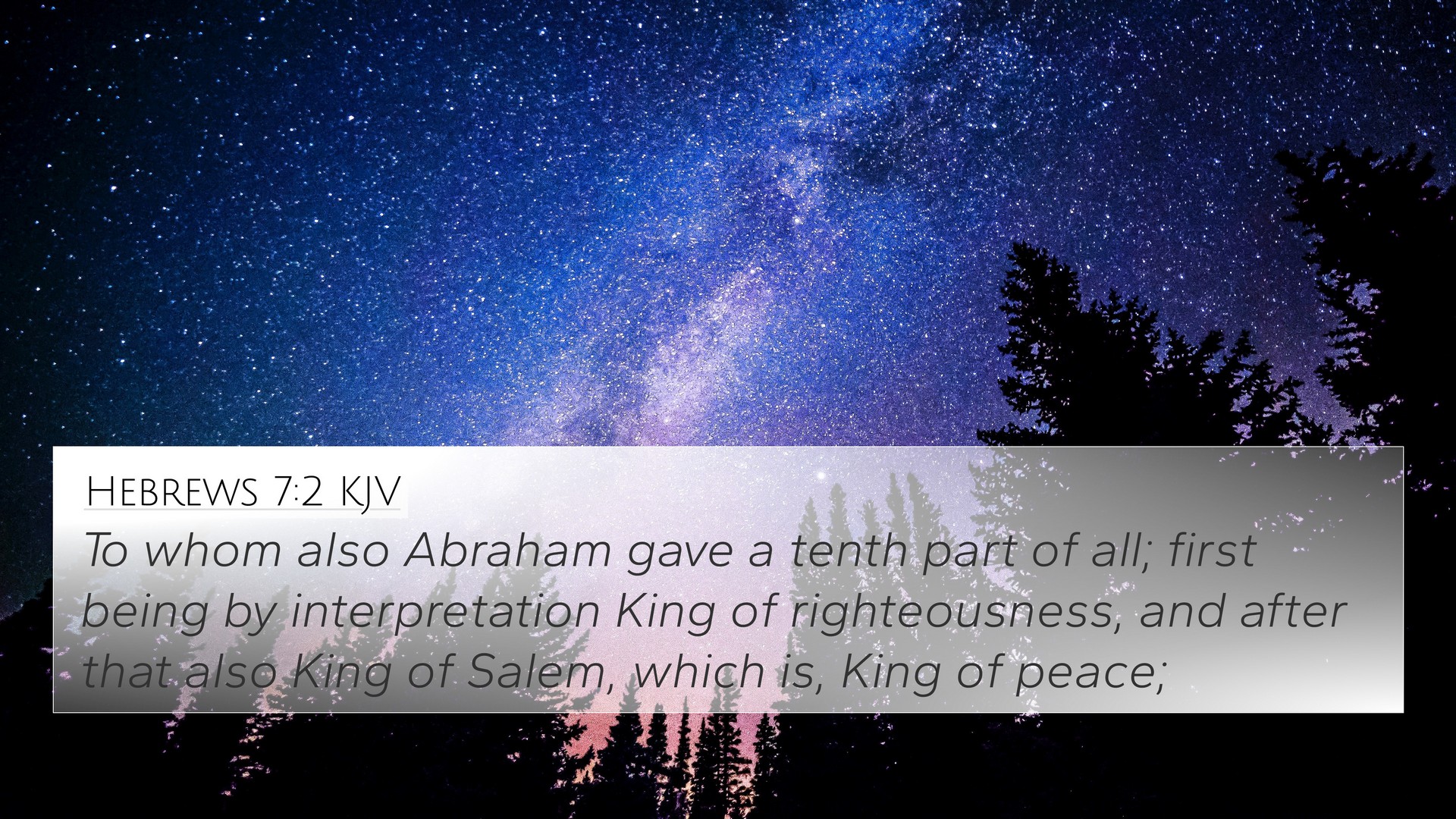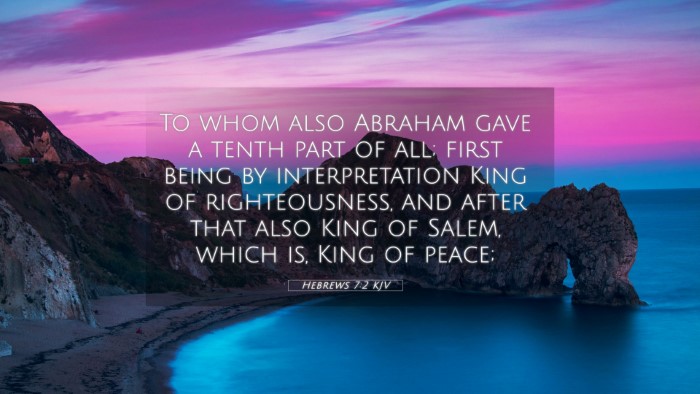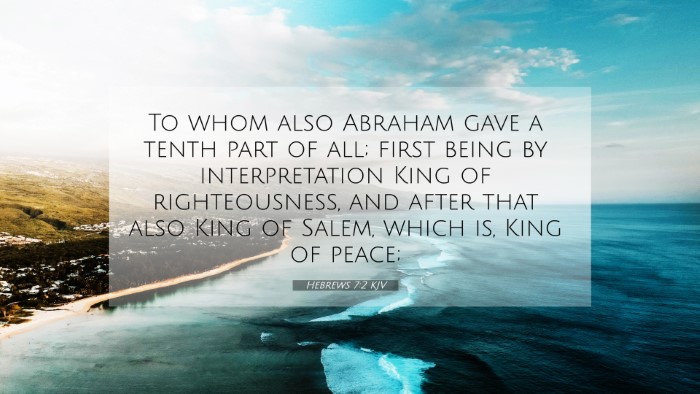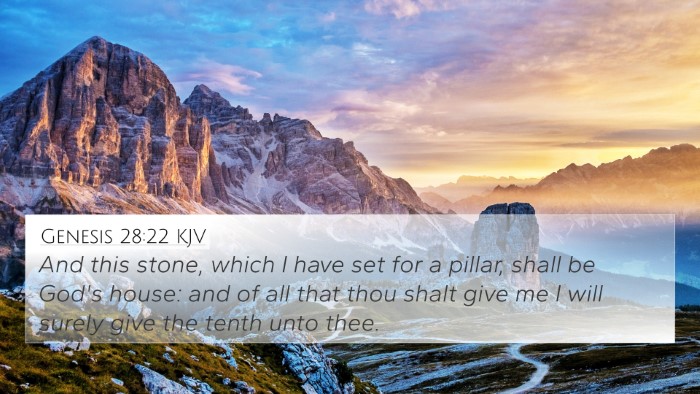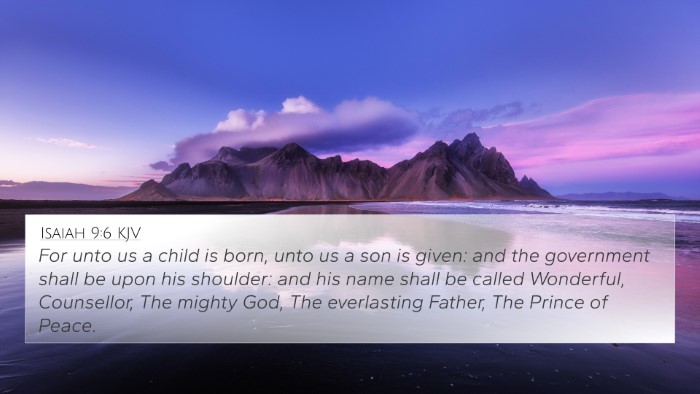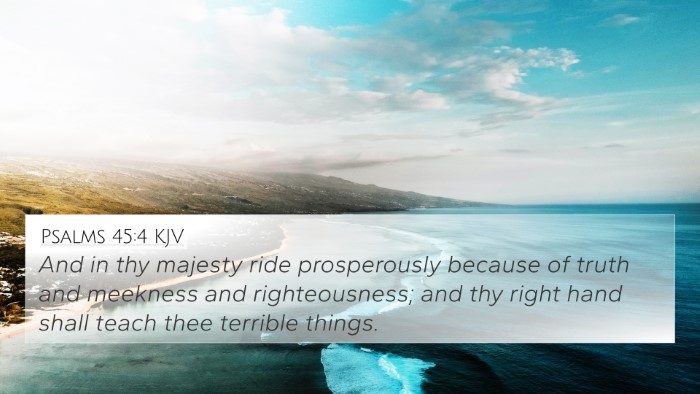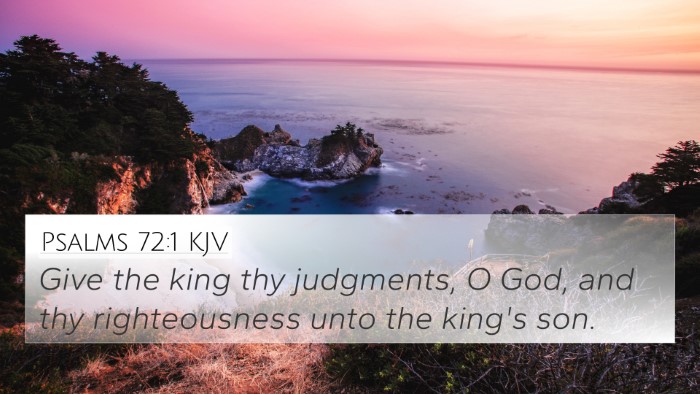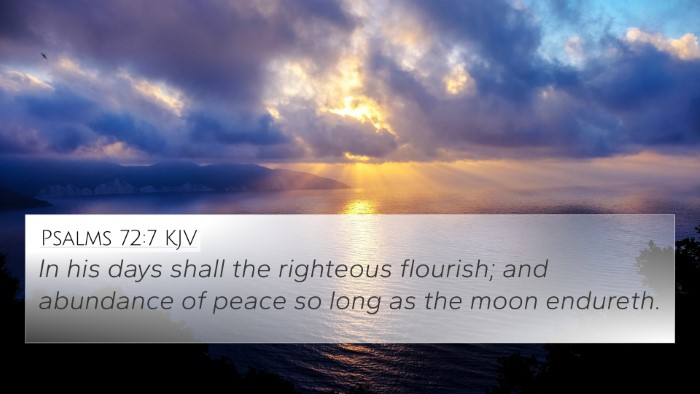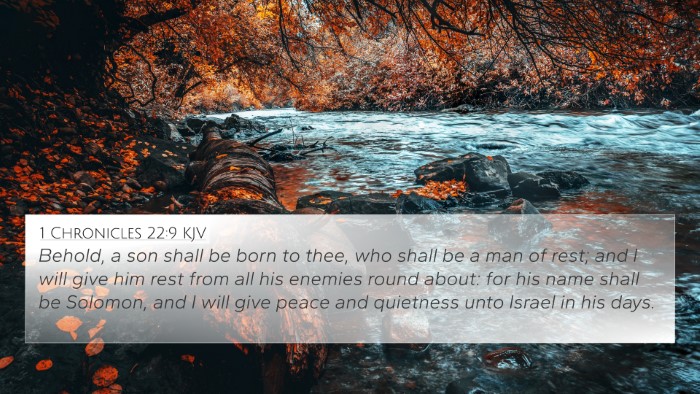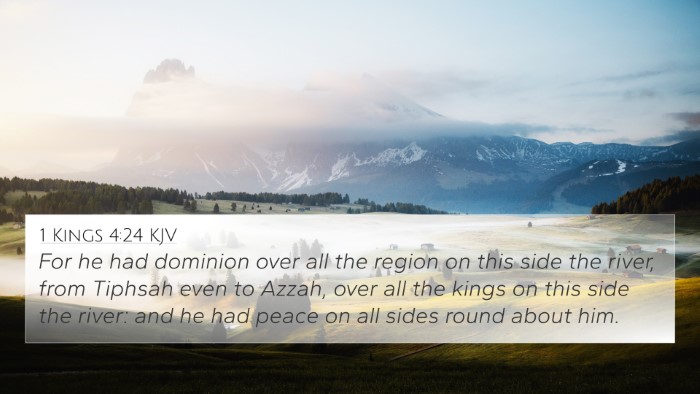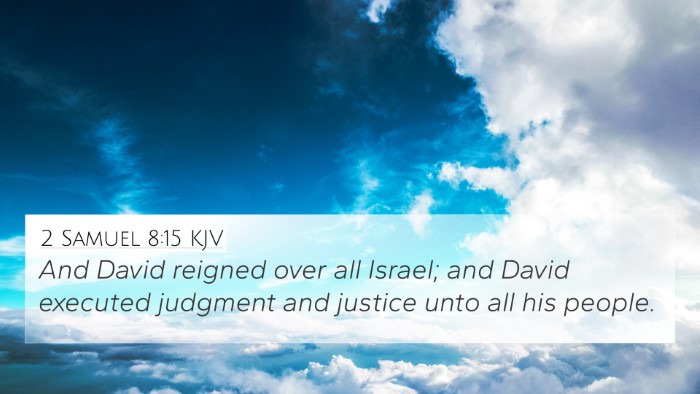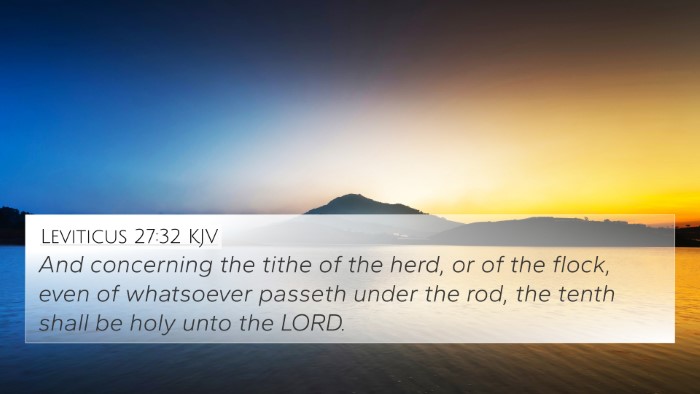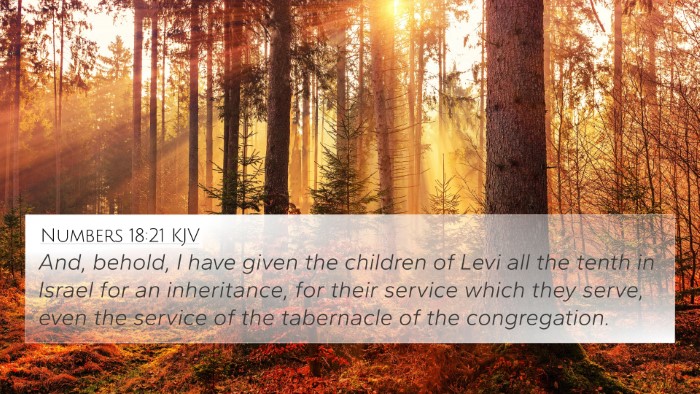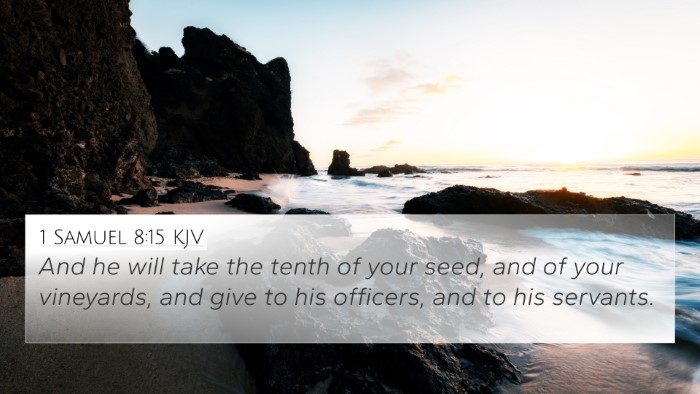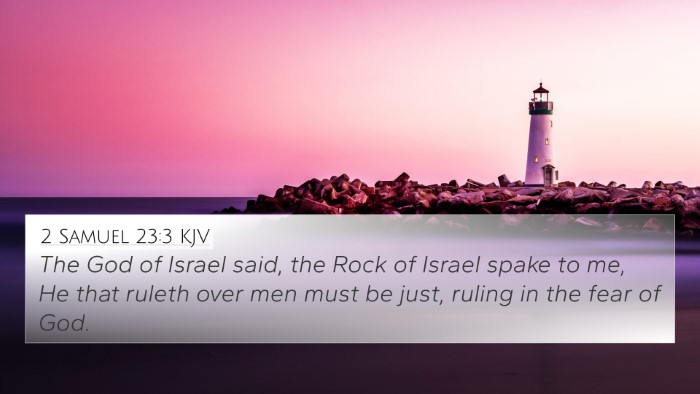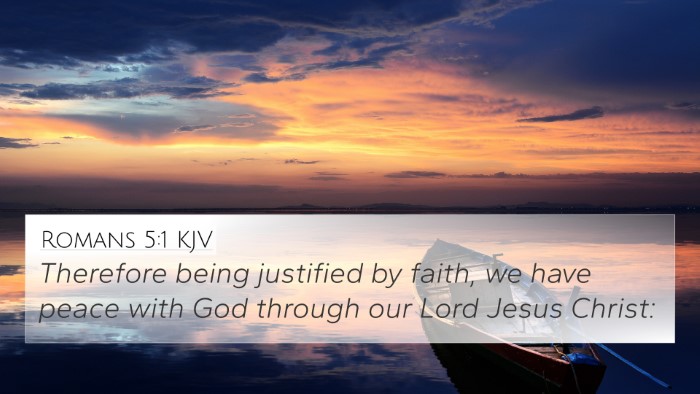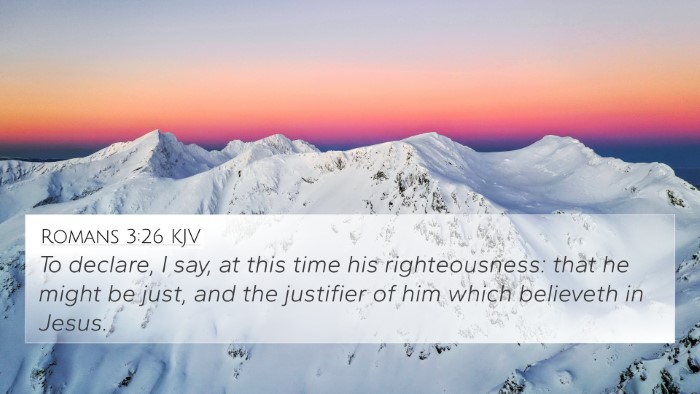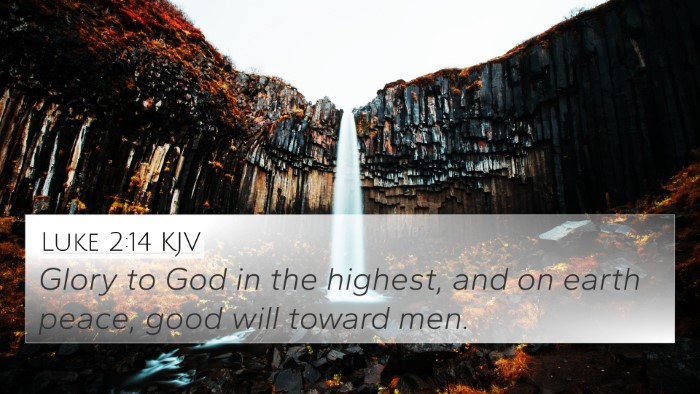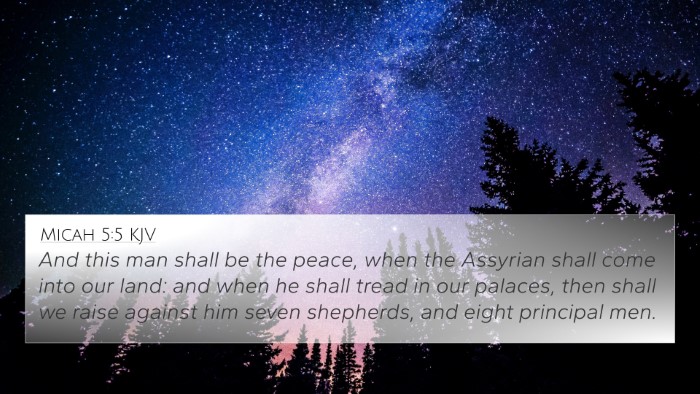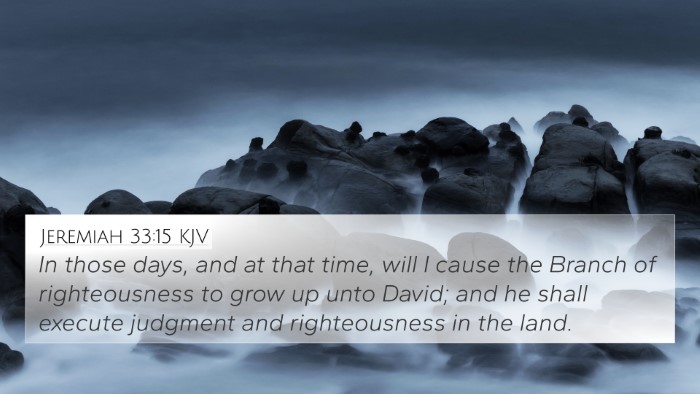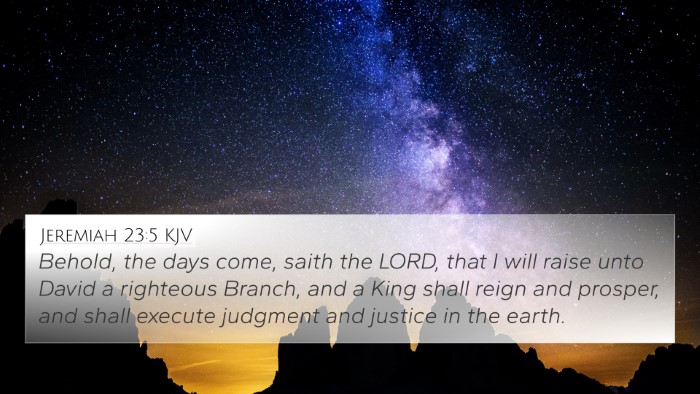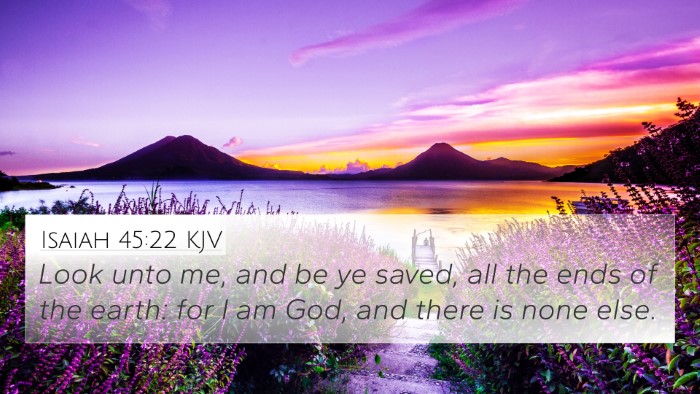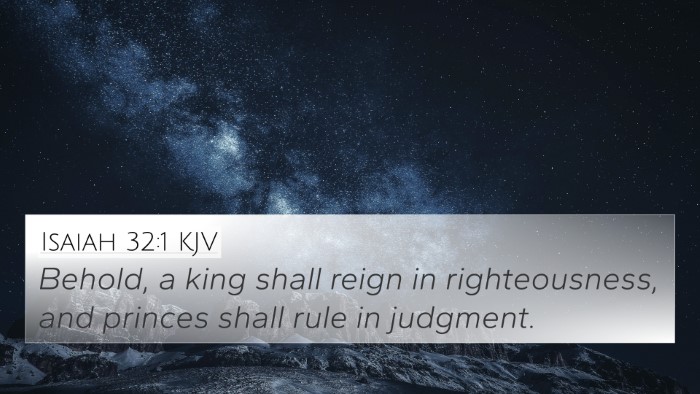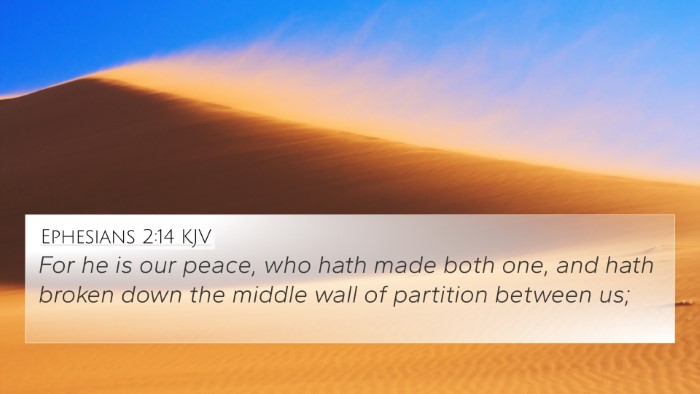Understanding Hebrews 7:2
Hebrews 7:2 states, "To whom also Abraham gave a tenth part of all; first being by interpretation King of righteousness, and after that also King of Salem, which is, King of peace." This verse holds great significance in the context of biblical themes and inter-Biblical dialogue.
Key Themes in Hebrews 7:2
This verse introduces Melchizedek, a mysterious and pivotal figure in scripture. The name is significant because it provides rich thematic connections between the Old Testament and New Testament, showcasing God's unfolding plan through the lineage of Abraham.
The Background of Melchizedek
The commentary of Matthew Henry emphasizes that Melchizedek’s identity as both King of Righteousness and King of Peace foreshadows the ultimate kingship of Christ, suggesting a profound typological connection. This reflects the biblical understanding of righteousness and peace as integral to the character of God.
Abraham’s Tithe to Melchizedek
Albert Barnes notes that Abraham’s action of giving a tenth to Melchizedek symbolizes not just an act of honor but indicates Melchizedek's superior priestly status. This establishes a thematic Bible verse connection concerning priesthood and authority as seen in both the Old Testament priesthood and that of Christ in the New Testament.
Significance of Kingship
Adam Clarke points out that Melchizedek represents a unique priest-king, a dual role that is rare in scripture. This aspect allows for profound linking of Bible scriptures, especially with the identity of Jesus as the eternal priest-king according to the order of Melchizedek.
Cross-Referencing Biblical Texts
Using tools for cross-referencing such as a Bible concordance or a Bible cross-reference guide, we can identify connections and insights from various scriptures that elucidate the meaning of Hebrews 7:2:
- Genesis 14:18-20 - The original account of Abraham meeting Melchizedek.
- Psalms 110:4 - A prophetic verse referencing Christ as a priest forever after the order of Melchizedek.
- Hebrews 5:6 - Discusses Christ’s priesthood and its connection to Melchizedek.
- Hebrews 6:20 - Further asserts Jesus as the forerunner who has become a high priest forever.
- Romans 14:17 - Highlights the righteousness and peace that belong to the Kingdom of God.
- Isaiah 9:6 - Refers to the Messiah as the Prince of Peace.
- Micah 5:5 - Shows the anticipation of a ruler who shall be peace.
- 1 Peter 2:9 - Positioning believers as a royal priesthood, reflecting the kingship and priesthood theme.
- Revelation 1:6 - Mentions that believers are made kings and priests unto God, emphasizing the continuity of the priestly line.
- Matthew 5:9 - Where the blessed are peacemakers, tying back to the theme of peace introduced by Melchizedek.
Thematic Connections and Interpretations
As we engage in comparative Bible verse analysis, it becomes evident that the themes of righteousness and peace are not isolated but echoed throughout scripture.
Righteousness and Peace Throughout Scripture
Matthew Henry's interpretation of righteousness as a precursor to peace enables a deeper understanding of the Gospel itself. Believers today are called to reflect the dual aspects of Melchizedek's character—being both righteous and peace-bringers in their conduct and witness.
Priestly Authority and Worship
Albert Barnes underscores the importance of the priestly role and its implications for worship. The New Testament fulfills the old covenant's shadow, establishing Christ as the ultimate mediator between God and humanity.
Application of Connection in Believers’ Lives
For readers seeking to deepen their understanding of scripture through cross-referencing Bible study methods, Hebrews 7:2 serves as an excellent starting point. The inter-Biblical dialogue showcased here invites believers to explore the rich tapestry of biblical ties that exist.
Conclusion
In summary, Hebrews 7:2 offers profound insights into the priesthood of Christ, the significance of Melchizedek, and thematic connections that resonate throughout scripture. As believers investigate Bible verses that relate to each other, this verse exemplifies how a singular passage can open up an entire framework of scriptural understanding.
Encouraging Further Exploration
Utilize a Bible cross-reference system to navigate through these connections. The rich themes of righteousness, peace, and Christ’s eternal priesthood are crucial for any in-depth Bible study and serve as pivotal points for preaching, teaching, and personal reflection.
